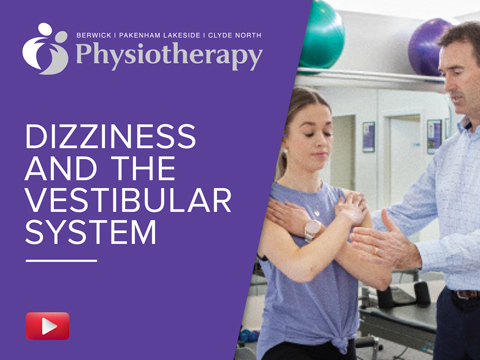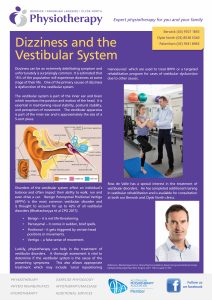Dizziness can be an extremely debilitating symptom and unfortunately is surprisingly common. It is estimated that 15% of the population will experience dizziness at some stage of their life. One of the primary causes of dizziness is dysfunction of the vestibular system.
The vestibular system is part of the inner ear and brain which monitors the position and motion of the head. It is essential in maintaining visual stability, postural stability, and perception of movement. The vestibular apparatus is part of the inner ear and is approximately the size of a 5-cent piece.
Disorders of the vestibular system affect an individual’s balance and often impact their ability to walk, run and even drive a car. Benign Paroxysmal Positional Vertigo (BPPV) is the most common vestibular disorder and is thought to account for up to 42% of all vestibular disorders (Bhattacharyya et al CPG 2017).
- Benign – it is not life-threatening.
- Paroxysmal – it comes in sudden, brief spells.
- Positional – it gets triggered by certain head
positions or movements. - Vertigo – a false sense of movement.
Luckily, physiotherapy can help in the treatment of vestibular disorders. A thorough assessment is vital to determine if the vestibular system is the cause of the presenting symptoms. This also allows appropriate treatment which may include ‘canal repositioning manoeuvres’ which are used to treat BPPV or a targeted rehabilitation program for cases of vestibular dysfunction due to other causes.
Ross de Valle has a special interest in the treatment of vestibular disorders. He has completed additional training in vestibular rehabilitation and is available for consultation at both our Berwick and Clyde North clinics.
References: Bhattacharyya N et al. Clinical Practice Guidelines: Benign Paroxysmal Positional Vertigo (Update) Otolaryngol Head Neck Surgery. 2017; 156 (3_suppl): S1-S47


